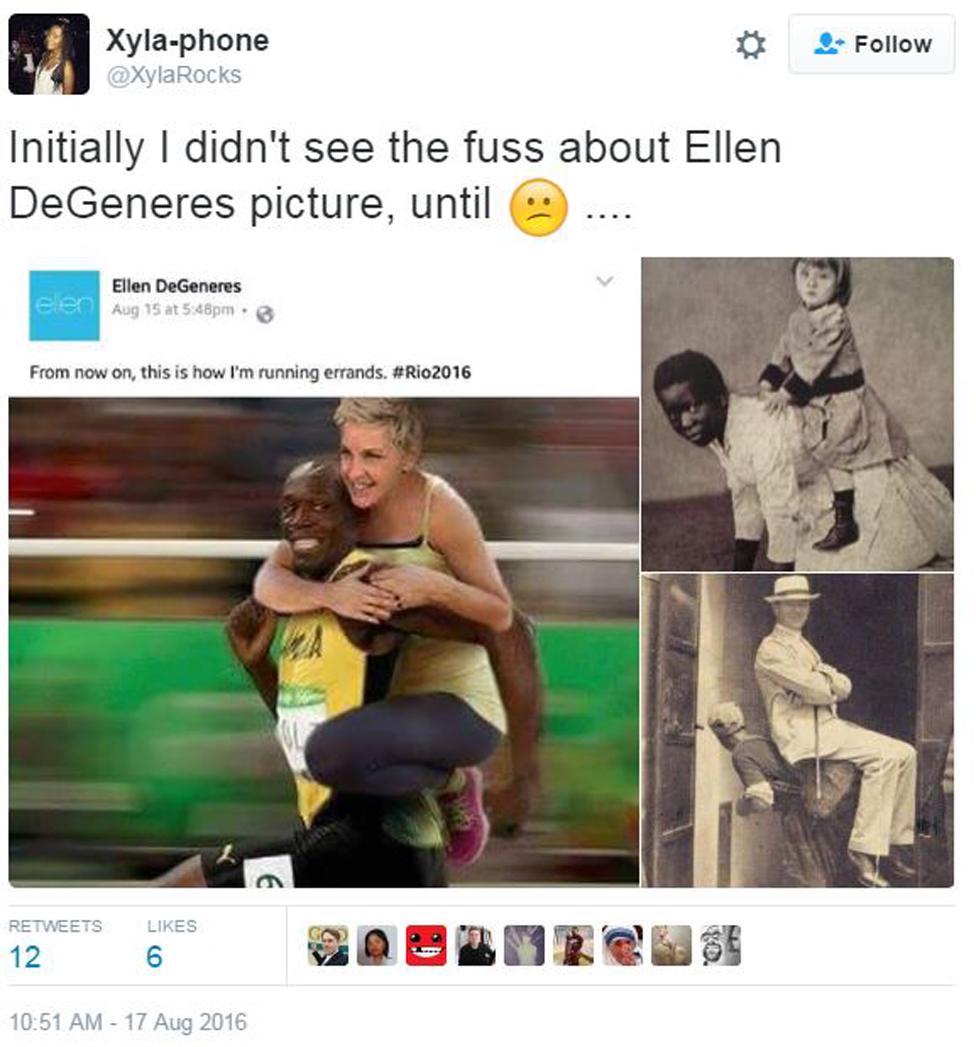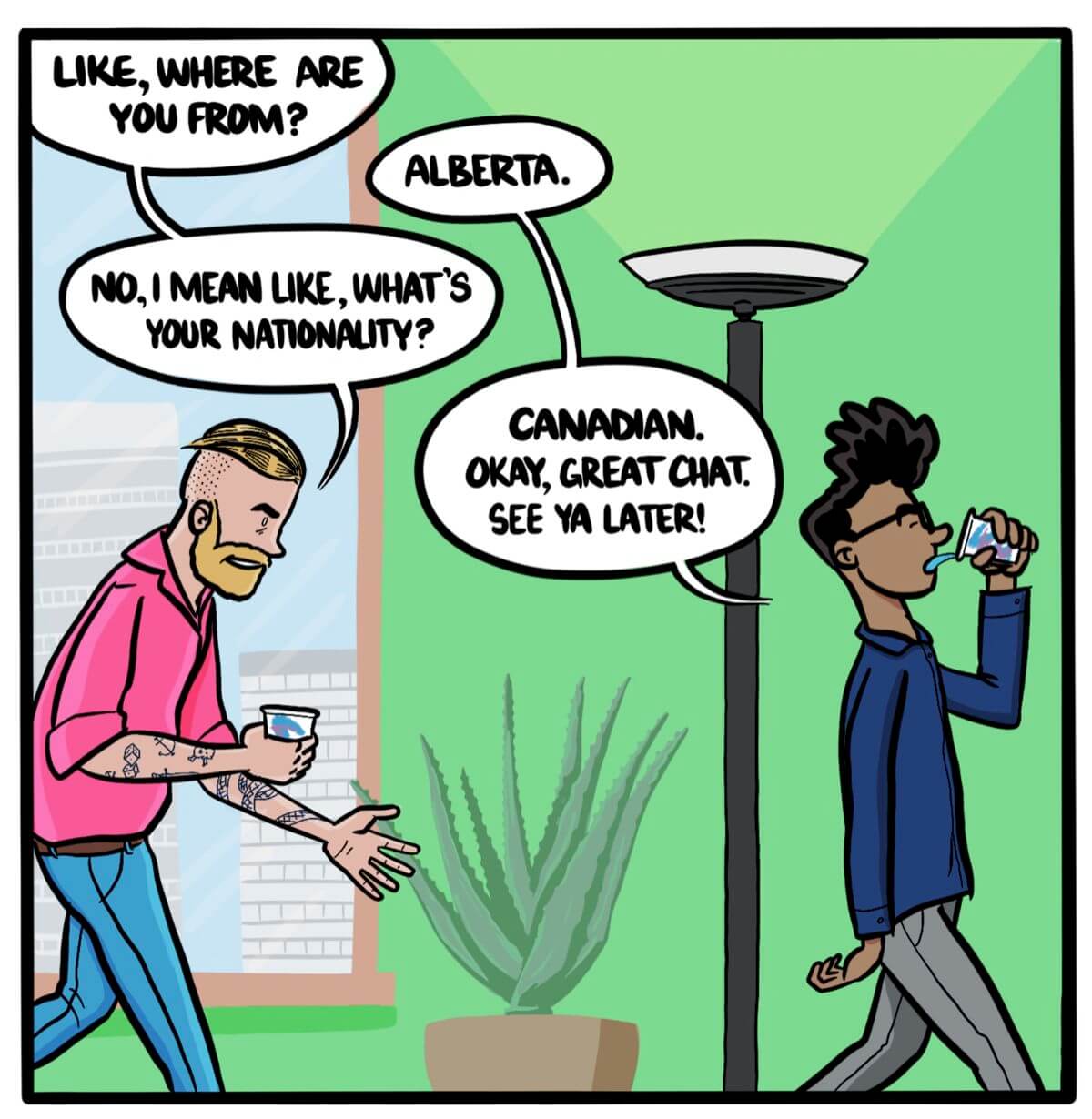Racist Black Jokes: A Candid Conversation On Humor, Sensitivity, And Cultural Awareness
Let’s talk about something that’s been floating around for years—racist black jokes. Now, before you roll your eyes or get defensive, hear me out. This isn’t just about cracking a joke at the dinner table; it’s about understanding the weight behind these words and how they shape our perceptions. Whether you find them funny or cringe-worthy, these jokes carry a lot of baggage, and it’s high time we unpack it.
Humor is one of the most powerful tools we have as humans. It can bring people together, break down barriers, and even heal wounds. But when humor crosses the line into racism, it becomes a weapon. And let’s be real, folks—racist black jokes aren’t just harmless fun. They perpetuate stereotypes, fuel discrimination, and hurt real people. So, why are they still a thing?
In this article, we’re diving deep into the world of racist black jokes. We’ll explore their origins, examine their impact, and discuss ways to approach humor with more sensitivity. If you’re ready for an honest conversation, buckle up because it’s gonna be a wild ride.
Read also:Tiny Texie Onlyfans Leaks The Truth Behind The Headlines
Table of Contents
- The Origins of Racist Black Jokes
- Stereotypes Reinforced by These Jokes
- The Impact on Black Communities
- A Brief History of Racial Humor
- Modern-Day Racist Black Jokes
- Representation in Media
- Promoting Sensitivity in Humor
- Alternatives to Racist Jokes
- Starting Conversations Around Racism
- Wrapping It All Up
The Origins of Racist Black Jokes
Let’s rewind the clock for a sec. Racist black jokes didn’t just pop up out of nowhere. They have deep roots in history, tracing back to slavery, segregation, and systemic racism. Back in the day, these jokes were used as a tool to dehumanize Black people, making them seem inferior and less deserving of respect. It was all about maintaining power dynamics, and unfortunately, humor played a big role in that.
Think about minstrel shows, for example. These performances, which date back to the 19th century, featured white actors in blackface, mocking Black culture and perpetuating harmful stereotypes. And guess what? Those shows were packed with “jokes” that painted Black people as lazy, unintelligent, and criminal. Sound familiar? Yeah, it’s not pretty.
From Minstrel Shows to Modern Media
Fast forward to today, and you’ll see echoes of those same stereotypes in some corners of the internet. Memes, tweets, and viral videos often recycle the same old tropes, proving that we haven’t come as far as we think. But here’s the thing: just because something’s funny to one person doesn’t mean it’s harmless to everyone else. And if it hurts someone, well, maybe it’s time to rethink the joke.
Stereotypes Reinforced by These Jokes
Alright, so let’s talk about the elephant in the room—stereotypes. Racist black jokes rely heavily on preconceived notions about Black people. You know the ones I’m talking about: “Black people love fried chicken,” “they’re all great athletes,” or “they’re prone to crime.” Sound familiar? These stereotypes may seem harmless on the surface, but they have real-world consequences.
When jokes like these go unchecked, they contribute to unconscious biases that affect hiring decisions, law enforcement practices, and even everyday interactions. It’s not just about a laugh; it’s about the ripple effect these jokes create. And let’s not forget, these stereotypes aren’t just inaccurate—they’re hurtful.
Breaking Down the Harm
Here’s the deal: stereotypes aren’t just lazy jokes; they’re dangerous shortcuts that oversimplify complex identities. They reduce entire communities to one-dimensional caricatures, erasing the diversity and richness of Black culture. So, the next time you hear someone cracking a racist black joke, ask yourself: is this really just a joke, or is it perpetuating harm?
Read also:Raul Esparza The Tony Awardwinning Star Redefining Broadway
The Impact on Black Communities
Now, let’s zoom in on the real impact of these jokes. For Black communities, racist humor isn’t just annoying—it’s painful. It reinforces the idea that their experiences, struggles, and achievements don’t matter as much as those of others. And when these jokes are shared widely, it creates an environment where racism feels normalized.
Imagine walking into a room and hearing a joke about your race. Do you laugh along to fit in, or do you speak up and risk being labeled as “too sensitive”? It’s a lose-lose situation, and it happens way more often than we’d like to admit. The emotional toll of dealing with these microaggressions day in and day out is real, and it’s time we acknowledge it.
Long-Term Effects on Mental Health
Studies have shown that exposure to racist humor can lead to increased stress, anxiety, and depression among marginalized groups. It’s not just about feeling uncomfortable; it’s about feeling invalidated and unseen. And when these feelings pile up, they can have serious mental health implications. So, the next time you think about cracking a joke, consider the person on the receiving end.
A Brief History of Racial Humor
Let’s take a quick trip down memory lane to understand how racial humor has evolved over time. From blackface performances to slapstick comedy, humor has been used to both oppress and empower throughout history. While some forms of racial humor have been reclaimed by marginalized communities, others continue to perpetuate harm.
In the early 20th century, racial humor was all over Hollywood. Movies like “The Birth of a Nation” and “Gone with the Wind” portrayed Black people as subservient and inferior, reinforcing the status quo. And while we’ve made progress since then, remnants of these portrayals still linger in modern media.
Reclaiming Humor: A Path Forward
On the flip side, we’ve seen Black comedians like Richard Pryor, Dave Chappelle, and Wanda Sykes use humor as a tool for empowerment. By reclaiming stereotypes and flipping them on their head, these comedians have shown us that humor can be a powerful weapon against racism. But here’s the catch: it works when it’s coming from the community being mocked, not outsiders.
Modern-Day Racist Black Jokes
Now, let’s talk about the present. In the age of social media, racist black jokes have found a new home. Platforms like Twitter, Instagram, and TikTok are filled with memes and videos that toe the line between humor and harm. And while some people claim they’re “just jokes,” the reality is that they still perpetuate harmful stereotypes.
Take, for example, the recent controversy over a viral video that mocked Black dialect. It may have gotten laughs, but it also sparked outrage from those who felt it was another example of cultural appropriation. The question remains: where do we draw the line between comedy and cruelty?
The Role of Social Media
Social media has given everyone a platform to share their thoughts, but it’s also made it easier to spread harmful content. The anonymity of the internet can embolden people to say things they wouldn’t dare say in person, and that includes racist jokes. So, the next time you see something questionable online, take a moment to think before you share.
Representation in Media
Media plays a huge role in shaping public perception, and that includes how we view race and humor. Shows, movies, and ads often rely on stereotypes to grab attention, but at what cost? When we see Black characters portrayed as one-dimensional or reduced to punchlines, it sends a message that their humanity doesn’t matter.
Thankfully, we’re starting to see more diverse and nuanced representations in media. Shows like “Black-ish” and “Insecure” are breaking down barriers and showing the complexity of Black experiences. But there’s still a long way to go. We need more stories that challenge the status quo and elevate marginalized voices.
Changing the Narrative
So, how do we change the narrative? It starts with holding media accountable. As consumers, we have the power to demand better representation and call out harmful portrayals. Whether it’s through social media activism or supporting inclusive content, every action counts. And who knows? Maybe one day, we’ll see a world where humor doesn’t come at the expense of others.
Promoting Sensitivity in Humor
Here’s the million-dollar question: can humor exist without causing harm? The answer is yes, but it takes effort. Promoting sensitivity in humor means being mindful of the impact our words have on others. It means asking ourselves: who’s laughing, and who’s being laughed at?
Comedians like Trevor Noah and Hasan Minhaj have shown us that humor can be both funny and thoughtful. By tackling tough topics with nuance and empathy, they’ve proven that laughter doesn’t have to come at the expense of others. It’s about finding the balance between making people laugh and making them think.
Tips for Being a Thoughtful Humorist
- Listen to feedback from marginalized communities.
- Avoid relying on stereotypes for cheap laughs.
- Use humor to challenge systemic issues, not reinforce them.
- Be open to learning and growing as a comedian.
Alternatives to Racist Jokes
Alright, so we’ve established that racist black jokes are a no-go. But what about alternatives? The good news is, there are plenty of ways to be funny without crossing the line into harm. From self-deprecating humor to absurdity, the possibilities are endless. And let’s be real, laughing at yourself is way more relatable than laughing at someone else’s expense.
Take a page from comedians like Ellen DeGeneres or Kevin Hart, who use their personal experiences to connect with audiences. Their humor is inclusive, relatable, and most importantly, respectful. So, the next time you’re tempted to crack a racist joke, try flipping the script and making it about something else. Trust me, it’ll be worth it.
Building Inclusive Comedy
Building inclusive comedy means creating spaces where everyone feels welcome. It means amplifying voices that have been silenced and celebrating diversity in all its forms. And while it may take some extra effort, the payoff is worth it. Because at the end of the day, laughter should bring people together, not tear them apart.
Starting Conversations Around Racism
Finally, let’s talk about the importance of starting conversations around racism. Humor is just one piece of the puzzle; it’s part of a larger conversation about equity, justice, and respect. By addressing the root causes of racism, we can create a world where everyone feels seen, heard, and valued.
So, the next time you hear a racist black joke, don’t just let it slide. Use it as an opportunity to start a conversation. Ask questions, share your perspective, and most importantly, listen. It’s not always easy, but it’s necessary if we want to create real change.
Building Bridges Through Dialogue
Dialogue is key to breaking down barriers and building understanding. It’s about creating safe spaces where people can share their experiences without fear of judgment. And while it may not always be comfortable, it’s the only way forward. So, let’s commit to having these tough conversations and working towards a more inclusive future.
Wrapping It All Up
Let’s recap: racist black jokes are more than just harmless fun—they’re a reflection of deeper societal issues. They perpetuate stereotypes, harm marginalized communities, and reinforce systemic racism. But here’s the good news: we have the power to change that. By promoting sensitivity, challenging harmful portrayals, and starting meaningful conversations, we can create a world where humor doesn’t come at the expense of others.
So, the next time you’re tempted to crack a racist joke, take a moment to think about the impact it might have. And if you’re not sure, err on the side of caution. Because at the end of the day, laughter should bring people together, not drive them apart. Now, go out there and spread some good vibes—your future self will thank you for it!
Got thoughts? Drop a comment below, share this article with a friend, or check out some of our other posts. Let’s keep the conversation going!
Article Recommendations



